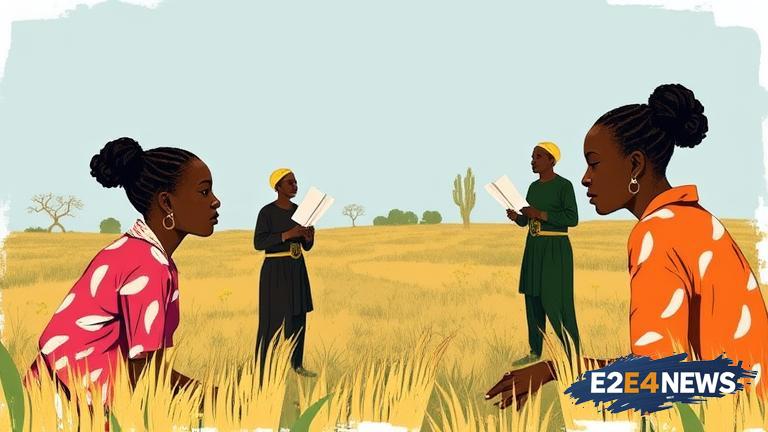In a bid to curb the rising cases of Gender-Based Violence (GBV) in Karonga District, a non-governmental organization (NGO) has taken a proactive step by engaging journalists in the area. The initiative aims to equip journalists with the necessary skills and knowledge to effectively report on GBV cases, thereby raising awareness and promoting a culture of zero tolerance towards this social evil. The NGO believes that the media plays a crucial role in shaping public opinion and influencing policy decisions, and therefore, it is essential to engage journalists in the fight against GBV. Through this initiative, the NGO hopes to create a network of journalists who are passionate about reporting on GBV and are committed to using their platforms to amplify the voices of survivors. The training program, which was attended by over 20 journalists from various media outlets, covered a range of topics including the definition and forms of GBV, the impact of GBV on individuals and communities, and the role of the media in preventing GBV. The journalists were also trained on how to conduct interviews with survivors of GBV, how to write sensitive and informative articles, and how to use social media to raise awareness about GBV. The NGO also provided the journalists with a comprehensive resource pack, which included information on GBV laws and policies, statistics on GBV, and contact details of organizations that provide support services to survivors. The initiative has been hailed as a major breakthrough in the fight against GBV in Karonga District, and it is expected to have a significant impact on the community. The engagement of journalists in the fight against GBV is a strategic move, as it will help to increase awareness and promote a culture of zero tolerance towards GBV. The media has the power to shape public opinion and influence policy decisions, and therefore, it is essential to engage journalists in the fight against GBV. The NGO’s initiative is also expected to have a positive impact on the lives of survivors of GBV, who often face stigma and discrimination in their communities. By providing journalists with the necessary skills and knowledge to report on GBV, the NGO hopes to create a safe and supportive environment for survivors to share their stories. The initiative is also expected to have a positive impact on the community, as it will help to promote a culture of respect and equality. The fight against GBV requires a multi-faceted approach, and the engagement of journalists is a critical component of this approach. The NGO’s initiative is a shining example of how civil society organizations can work together with the media to promote social change. The initiative has also highlighted the importance of collaboration and partnership in the fight against GBV. The NGO has called on other stakeholders, including government agencies, community leaders, and individuals, to join the fight against GBV. The fight against GBV is a collective responsibility, and it requires the efforts of everyone to create a society that is free from violence and discrimination. The NGO’s initiative has also underscored the importance of using social media to raise awareness about GBV. Social media has the power to reach a large audience, and it can be used to promote a culture of zero tolerance towards GBV. The NGO has encouraged journalists to use social media to share articles, videos, and other content that promotes awareness about GBV. The initiative has also highlighted the importance of providing support services to survivors of GBV. The NGO has partnered with organizations that provide support services, including counseling, medical care, and legal assistance. The initiative has also underscored the importance of promoting a culture of respect and equality in the community. The fight against GBV requires a fundamental shift in societal attitudes and norms, and it requires the efforts of everyone to create a society that values and respects the rights of all individuals. The NGO’s initiative is a major step forward in the fight against GBV, and it is expected to have a significant impact on the community. The initiative has also highlighted the importance of using data and statistics to inform policy decisions and programming. The NGO has provided journalists with access to data and statistics on GBV, which will help to inform their reporting and promote a culture of evidence-based programming. The initiative has also underscored the importance of promoting a culture of accountability and transparency in the fight against GBV. The NGO has encouraged journalists to hold duty-bearers accountable for their actions, and to promote transparency in the reporting of GBV cases.
